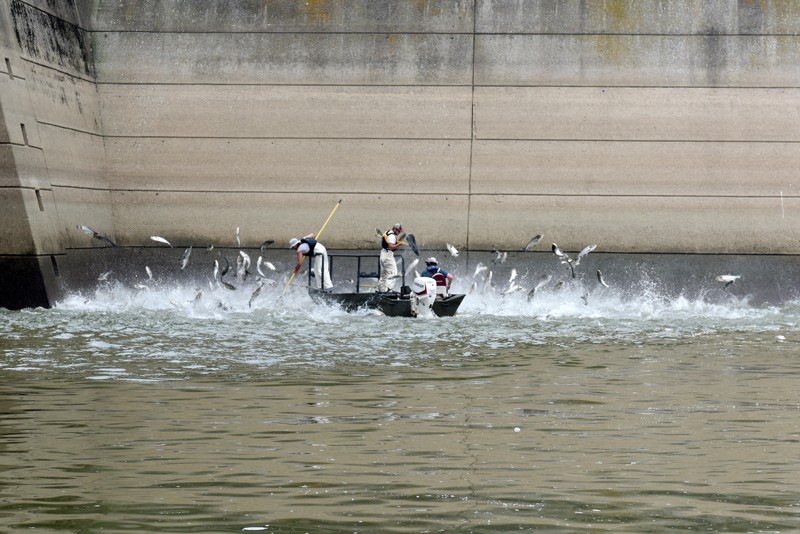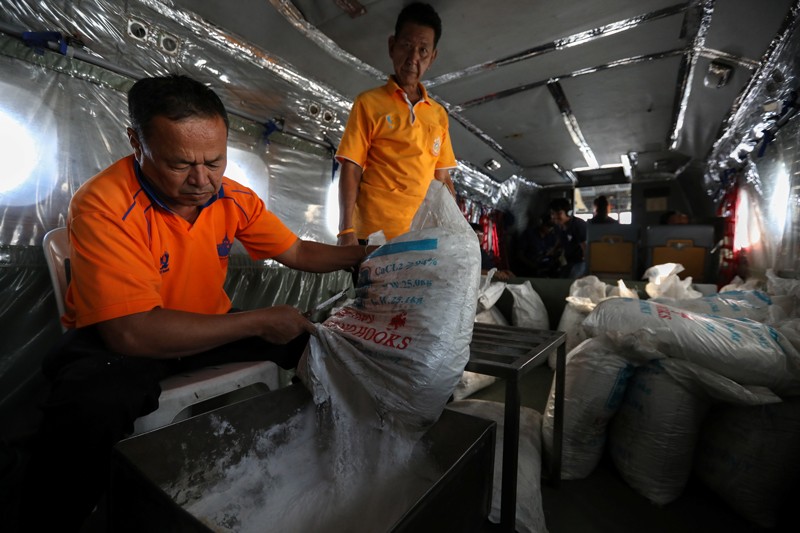Under a White Sky: The Nature of the Future Elizabeth Kolbert Crown (2021)
Humans are brilliant at coming up with solutions. But often these bring new problems that require their own solutions — that bring their own problems. It’s like the old lady who swallowed a fly in the children’s rhyme.
Civilization, essentially, has been a project to control natural systems: a river that is in the wrong place for us; earth that is too wet, or not wet enough; forests that we replace with monocultures of food, and so on. But natural systems are not compliant, and the unintended consequences of our changes require further fixes. The result is a world dominated by human influence, the Anthropocene epoch. Our problems are global and so, too, are our fixes.
These cascades of geoengineering are the subject of the latest book from Elizabeth Kolbert, Pulitzer-prizewinning environment reporter at The New Yorker. Under The White Sky looks at what people are doing to address the catastrophes that Kolbert described in two previous books — climate change (Field Notes From A Catastrophe, 2006) and biodiversity loss (The Sixth Extinction, 2014). She tours a range of cutting-edge experiments, from the restorative to the radical, across the United States, Europe and Australia. The result is an arresting montage of just how hard it is to return balance to our exquisitely interconnected biosphere, and the extraordinary efforts people go to in the attempt.
Kolbert visits the mighty Chicago River system in Illinois, which was re-plumbed to discharge the city’s sewage, with major tributaries rerouted and even reversed. Here, she documents efforts to prevent an invasive fish species — deliberately introduced into the Mississippi River basin — from causing havoc to the newly connected Great Lakes ecosystem. These include electrifying sections of river, fish-hunting carnivals and a range of madcap inventions, such as a “disco” noise-and-jet water barrier and sweet treats used as bait.
Further south, in coastal Louisiana, she finds engineers planning a multibillion-dollar artificial river system to replicate the former flows of the powerful Mississippi. Excessive tinkering with the river, straightening it and creating flood defences, have caused the land to sink and disappear, because alluvial soils are no longer replenished by regular sediment dumps. New Orleans is rapidly shrinking; smaller settlements have already been abandoned. As in her New Yorker essays, this is Kolbert at her most compelling — producing visceral, engrossing journalism with clear explanations of both science and social context.
An element of the ridiculous is ever-present in the dance between human hubris and desperation. Kolbert orchestrates this comic strand with aplomb, never sacrificing empathy or the humanity of her characters. It is only a shame that the focus is entirely on problems and solutions in rich countries, given the global nature of the Anthropocene and the inequity of its burdens.
Artificial ecosystems
In the Mojave Desert, Nevada, she visits an expensively created, fully staffed, artificial pond cave, built to try to conserve a minuscule fish that humans have made critically endangered in the wild. In an aquatic laboratory in Australia, she observes coral spawning, cued by a simulated romantic sunset. This is the prelude to an in vitro fertilization programme that researchers hope will help to save the Great Barrier Reef from its calamitous decline in the wake of global heating. At one point, Kolbert wryly notes “how much easier it is to ruin an ecosystem than to run one”.
Kolbert meets genetic engineers hoping to replace struggling species such as endangered corals with ones modified to tolerate our environmental changes. Of this dramatic, ecosystem-altering step, one of the researchers points out: “We’re constantly moving genes around the world, usually in the form of entire genomes.” Consider the Peruvian potatoes planted in Europe’s fields or the domestic cats introduced by Europeans to New Zealand, where they have contributed to the extinction of at least nine native bird species.
Saving a fish species is hard, a coral-reef ecosystem immeasurably harder, but the ultimate challenge is fixing the global climate. Kolbert looks at geoengineering techniques to suck carbon dioxide from the air and store it, visiting facilities in the United States and Iceland. Options for ‘negative emissions’ were what finally got the 2015 Paris climate treaty over the line. The agreement to limit greenhouse-gas emissions factors in solutions such as planting forests to take up CO2 as they grow, and capturing industrial emissions at their source, then burying them.
The agreement does not mention more radical ‘hard geoengineering’ techniques to cool the climate, although research has been under way for decades. Kolbert talks to those studying methods to reflect the Sun’s heat, including spraying light-scattering calcite into the stratosphere, which would produce the white sky of the book’s title. This would be a drastic step. Yet, the extent of global heating brings its own terrible risks, which geoengineering could alleviate. “Doesn’t it have to be considered?” she asks, but can’t bring herself to answer.
There’s a grim fatalism to all this. We are so far down this path of global change that to turn back now is unthinkable, even impossible — like the old lady of the rhyme, who inevitably swallows the horse. Kolbert lays out this paradox perfectly. But she does so in the detached manner of an observer: always the reporter, documenting events but never asserting her own opinion. The book ends abruptly when the coronavirus ruins her plans for further research trips, leaving as much unresolved within its pages as outside them. It is, then, a superb and honest reflection of our extraordinary time.
"front" - Google News
February 08, 2021 at 09:13PM
https://ift.tt/3cQwycX
Outstanding reportage from the front lines of geoengineering - Nature.com
"front" - Google News
https://ift.tt/3aZh1mr
https://ift.tt/3b2xvu5


No comments:
Post a Comment